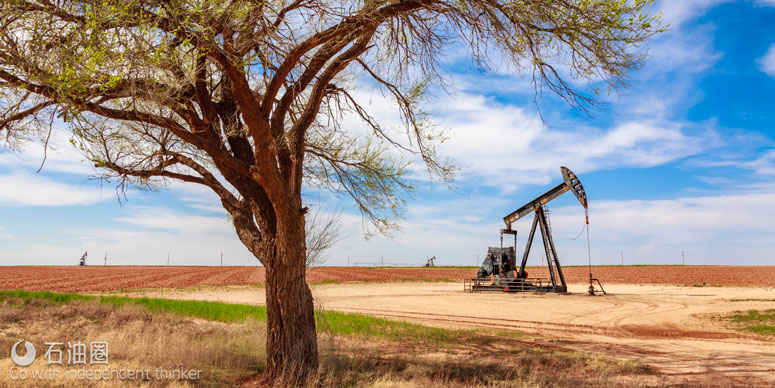So what if we are in Systemic Decline with regards to demand for oil and all the predictions based on increasing population around the globe eventually requiring increased oil for their development, do not eventuate.
What if this is a paradigm shift and permanent change with alternative energy sources being able to permanently replace some of the uses for oil.
Dawn Darling answered 2 days ago
If indeed this is the new normal then we as oil and gas professionals will adapt. Some of us will retire, some will find new industries, universities will scale back their programs and young people will not consider oil and gas related degrees. All of which will then lead to another shortage in personnel for the remaining positions. So the cycle starts over.
William Edwards answered 2 days ago
The problem with this question is that it is based upon the fallacy that current prices are “low”. Historic data indicate that current prices are “high”, not low. If we re-phrase the question using that more reasonable basis, we would ask “What if the price of oil returns to its normal (lower) level?” What if the recent high prices were not a paradigm shift, but only a temporary bubble?”
Dr. Paul D Giammalvo answered 2 days ago
I do think there is at least a mid term paradigm shift, (“never” is a long time!!) but it is not on the demand side but on the supply side.
I think the demand will continue to grow, albeit just not at the same rate. Keep in mind that oil has so many purposes (think fertilizer, plastics) that the demand is not going to be impacted greatly by alternate energy sources. (You still need back up generators for solar for when the sun don’t shine)
Where I see the paradigm on the supply side is fracking…. “Tight Oil” abounds and now that the “Fracking Genie” is out of the bottle, nearly all countries who have shale oil are experimenting with recovering it. Which means for at least 5 years and maybe more we are likely to see a glut of oil coming on the market and as with any technology, the more it is used, the lower the costs are.
We certainly do live in interesting times…
Kevin Halliley
Agreed that ‘never’ is a long time. Maybe too long a timeframe.
I still question whether demand will continue to grow? And even if it does grow, will the pace of supply continue to outstrip any increase in demand?
Without being pedantic, fertiliser can be produced from natural gas, we have an ammonia plant close by where they strip the natural gas, so no oil required here. Granted its from the same family ( oil & gas), but in essence I see them as separate industries.
With regard to backup generators, once again agree that they are usually installed as a backup to the primary source of generation. But we have trials going on now, where and installed solar is backed up with battery storage which is then backed up by a diesel generator. To date the diesel generators have never run except for a test run to verify they will run if needed !
Installed cost was was more effective than replacement cost of the overhead powerline infrastructure that was prone to falling over during storms or bushfires.
All I see are indicators that we are becoming less dependant on oil.
Your fracking comment just cements the suggestion that the price will be lower for longer and may in fact go lower ?
Dr. Paul D Giammalvo
Hi Kevin, oh, I DEFINITELY agree that prices are going to remain flat or even drop for at least 2 years and probably longer, But that assumes there are no major wars or other political or financial upheavals (which are not only entirely possible but even somewhat probable)
Here are some projections published by OPEC themselves and they show three scenarios, two of them being continued increase in demand out to 2040 and one showing a falling demand starting around 2030. Not that I believe OPEC is infallible, just that they do have access to data and the money to hire “experts” to analyze that data, and have appeared to do a “credible” job in their analysis and conclusions. (But as we saw in the last US election, hiring “experts” to analyze data does not necessarily mean their predictions will be correct)
Semon Getahun
The price of oil to fluctuate is a normal occurrence. But if the price indeed stays low for some time to come, the oil companies need and will adapt in the future with low prices. If we see the trend of the price of oil, we will see some abnormality in recent past. The prices look as if they were artificially hiked by companies. Yes that’s true companies spend more and more for the state of the art technologies and expect more in return. But that’s not the case as the prices were artificial and not market driven. If the oil price stays lower, I expect, as we are witnessing now, number of start up businesses to drop out of the competition. The low competition will enable the big players to dictate the oil market and drive the price where it’s financially sound to invest in oil industry.
Kurt Anderson
I wouldn’t count on a systemic decline in oil demand just yet. Demand curves generally show not just a positive linear progression but a geometric one. Based on a posteriori data, these curves appear to be immutable. Obviously some global event as yet unseen may cause a curve aberration, but any such change will be of short duration; within a small standard deviation the demand curve remains a continuous function. What is currently and temporarily important is the over-production effect without the downstream benefit in consumption. The derivative of demand growth will not increase as expected if refining does not pass along the benefit of lower prices.
Whether that be due to lack of refining capability or simple reluctance to lower prices, if a product price point remains the same, and no exterior pressure is applied to change the point, the price will not vary within a given range even as demand decreases. Alternative energy is only energy and is thus in the same economic band as any other fuel. If one energy sector is cheaper than another in a pure market, that sector will dominate the market. If one energy sector is more reliable as well as more economic, that sector will dominate the market.
Any market shift to a less economic, less reliable source would be driven by forces outside economics; governments. So, alternative energy will not replace fossil fuels until it can do so at a cost less than fossil fuels.
In looking at that cost, one must remove the environmental advantages of alternative energy over fossil fuels, and it must include the cost to consumers of the paradigm shift from one source to the other. For example; if an electric car is the same price as a fossil fuel car, and equal in all respects otherwise, the cost of ownership must also be cheaper in order for that operating model to replace the prior model. While alternative energy has carved out a small market share of the overall energy demand, it has not done so without those aforementioned outside forces (government).
Governments, I remind, change, and with them the economic balance of energy sources will change/have changed.
Alternative energy has enjoyed a carve out in the last few decades, but only due to the government benefactor relationships of subsidization and con-fossil fuels regulatory frameworks. Obviously, in the US and other places, alternative energy has been found out to be much less economic on the consumption side. Theoretical environmental benefits notwithstanding, the consumer side will not make the shift until the economics support the shift. Long story short, when a posit is based on fallible argument, conclusions are likewise fallible.
Equally you could say the oil and gas industry has enjoyed energy market dominance through government benefactor relationships of subsidization etc. The top 10 oil companies have more global political influence than the 50 poorest nations of the world. Hydrogen fuel technology has been around for a long time but was suppressed from advancing by big oil company’s agendas. Interestingly in Australia, its the people that are manipulating the energy markets not the Government. The Australian Government is pushing fossil fuels still, but Australian people are continuing to by into solar panels, electric cars, invest in renewable energy companies and so on. You must keep in mind that the majority people who are not related to the oil and gas industry want change and its beyond cost factor, its simply about breathing clean air, no more oil spills and swimming in clean water. My oil and gas career is over and it sucks but if its for a cleaner world – I’m all for it.


 石油圈
石油圈
